Are you in search of the best option to arrange a Blast RPC node? If that’s the case, you’re exactly the place you have to be. On this information, we’ll introduce you to Moralis, the business’s #1 node supplier. With our user-friendly point-and-click interface, now you can arrange Blast RPC nodes without spending a dime with out breaking a sweat. Are you desirous to find out how this works? Try the transient breakdown of the method right here:
Step 1: Enroll with Moralis.Step 2: Log in to the Moralis admin panel, navigate to the “Nodes” tab, and click on “+ Create Node”:
Step 3: Choose “Blast”, adopted by “Mainnet”, and hit the “Create Node” button:
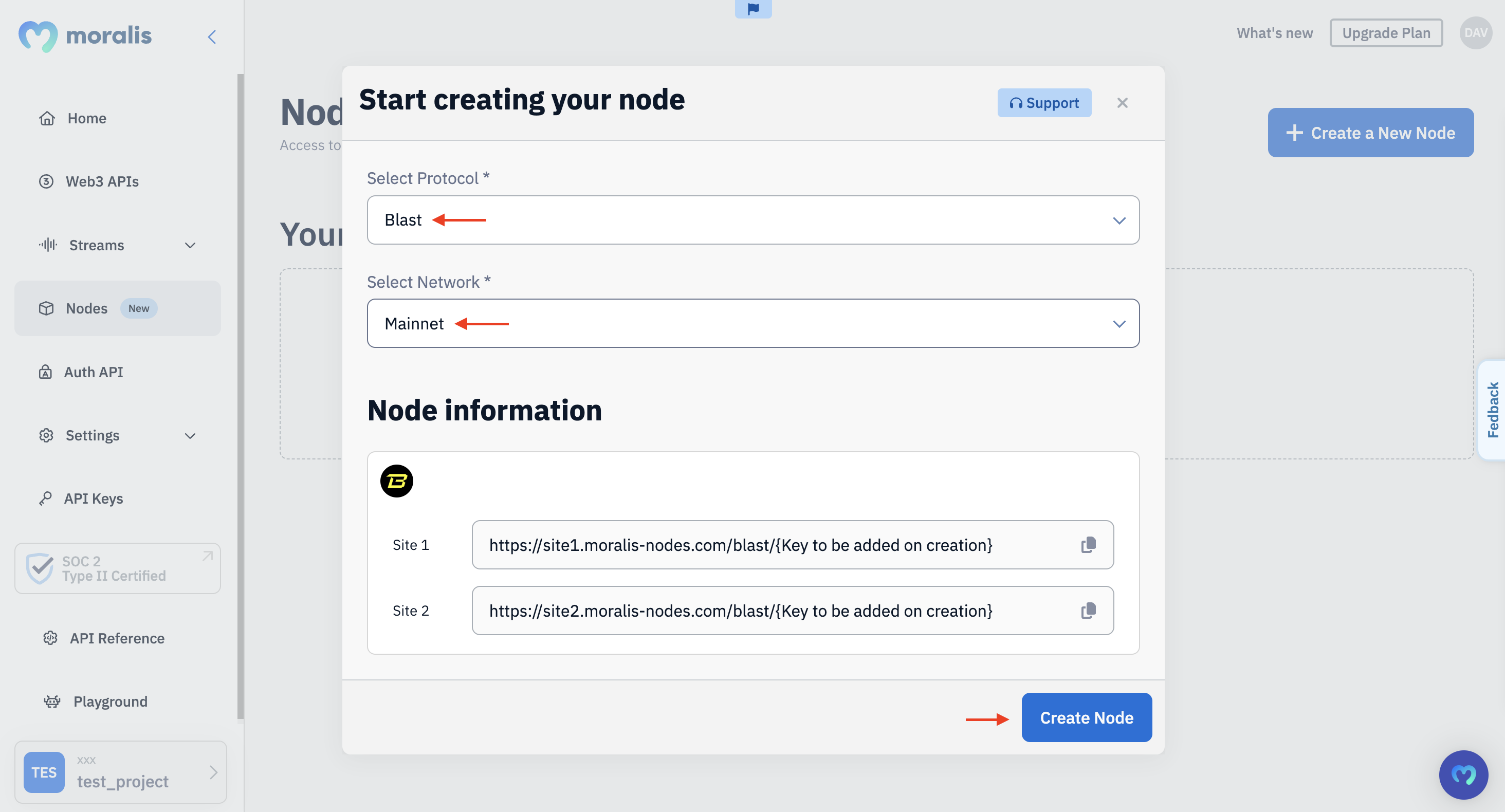
By following the steps above, you’ll obtain two URLs to your Blast RPC nodes:
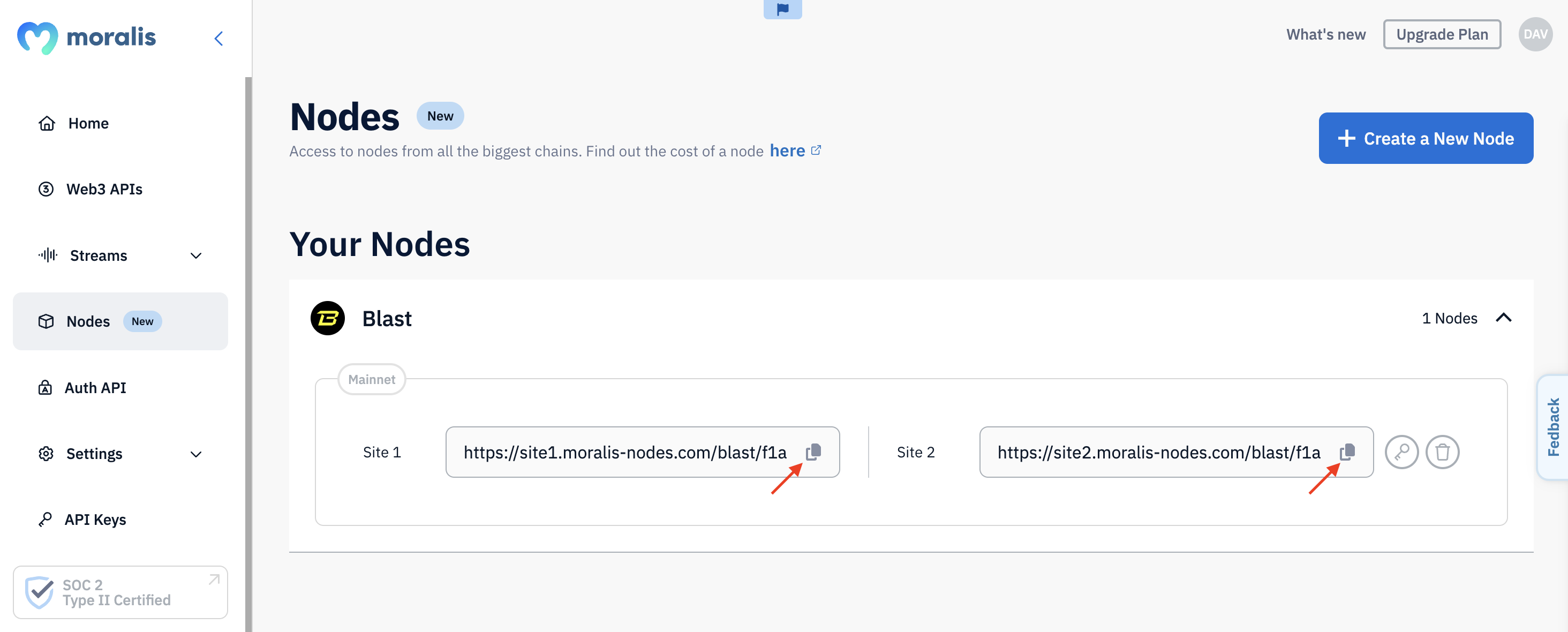
That’s it! When utilizing Moralis as your supplier, it doesn’t need to be tougher than this to arrange Blast nodes. Nevertheless, for a extra in-depth tutorial, be part of us on this information as we break down every step in additional element.
Able to arrange a Blast node? Don’t overlook to enroll with Moralis. You may register a Moralis account without spending a dime and acquire instantaneous entry to our node service and different premier improvement instruments!
Overview
Organising Blast RPC nodes by yourself requires a sturdy infrastructure with vital computational energy, ample storage capability, substantial bandwidth, and extra. Consequently, operating a Blast RPC node could be each expensive and time-consuming. Fortuitously, now you can bypass these challenges by choosing a dependable node supplier like Moralis!

At Moralis, we deal with all of the underlying complexities, permitting you to arrange a Blast RPC node with out breaking a sweat. In truth, with our intuitive consumer interface, you’ll be able to arrange RPC nodes for 30+ chains on the click on of a button. Wish to study extra about how this works? Be part of us on this information as we introduce you to Moralis’ node service. Let’s dive straight in!
What’s Blast?
Blast is an EVM-compatible layer-2 (L2) scaling answer for the Ethereum blockchain that gives native yield for Ether (ETH) and stablecoins. The community leverages optimistic roll-up expertise to deal with the scalability problems with Ethereum by growing transaction throughput and offering decrease fuel charges.

However what makes Blast distinctive?
Auto Rebasing: Blast is designed to natively rebase ETH on the community, permitting customers to seamlessly transact and construct dapps across the cryptocurrency. Layer-1 Staking: Yield from L1 staking, initially Lido, is autonomously transferred to customers through rebasing ETH on the Blast community. This wasn’t doable till Ethereum’s Shanghai replace, which was deployed in 2023. T-Invoice Yield: Customers who bridge stablecoins obtain USDB, which is Blast’s auto-rebasing stablecoin. The yield from this token comes from MakerDAO’s on-chain T-Invoice protocol. And USDB could be redeemed for DAI when it’s bridged again from Blast to Ethereum. Low Threat: By integrating native yield mechanisms, Blast minimizes the danger of asset depreciation. This ensures that customers’ property develop relatively than diminish over time.
With this overview of what Blast is, let’s now discover some advantages of constructing on the community!
Advantages of Constructing on Blast
There are a number of advantages to constructing dapps on Blast, and under, we’ll discover 4 distinguished examples:
Scalable: Blast leverages optimistic roll-up expertise to bundle many transactions off-chain, submitting them to the Ethereum mainnet in bulk. By this technique, Blast is ready to enhance transaction throughput, considerably decreasing community congestion. Value-Environment friendly: Since Blast reduces the load on the Ethereum mainnet, transaction charges are lowered. This makes dapp utilization extra inexpensive, which, in flip, can appeal to a wider consumer base. Safe: As an L2 scaling answer, Blast inherits safety from the underlying Ethereum community. In return, which means Ethereum’s strong infrastructure protects funds and transactions. Developer-Pleasant: With Blast’s EVM compatibility, it’s doable to construct dapps with acquainted instruments like MetaMask and normal programming languages like Solidity. This supplies a extra seamless onboarding course of for present Ethereum builders.
What are Blast RPC Nodes?
Blast RPC nodes are computer systems and different gadgets that preserve the community’s performance, safety, and integrity. They obtain this by validating transactions, storing knowledge, collaborating in consensus mechanisms, and far more. The Blast community consists of quite a few such nodes working collectively to make sure environment friendly community operations.

However what are some widespread use circumstances for Blast RPC nodes?
Blast RPC nodes serve a number of crucial capabilities inside blockchain networks. One major use is transaction validation, which is key for sustaining the integrity and safety of any blockchain. Moreover, sure nodes, like archive nodes, retailer a complete file of all transaction and good contract knowledge on the chain, which is crucial for verifying community exercise.
One other vital use of Blast RPC nodes is in Web3 improvement. These nodes allow builders and dapps to work together with the Base community, facilitating each the studying and writing of blockchain knowledge. And as you’ll be able to think about, that is fairly vital for dapp improvement.
That offers you an outline of what Blast RPC nodes are. Within the following part, we’ll present you the right way to arrange a Blast node utilizing Moralis, the business’s main node supplier!
Introducing Moralis – The Best Option to Set Up Blast RPC Nodes
Moralis stands out because the business’s main node supplier. With our intuitive consumer interface, it’s doable to run nodes for 30+ chains on the click on of a button. As such, when leveraging Moralis, you’ll be able to arrange Blast RPC nodes with out breaking a sweat!
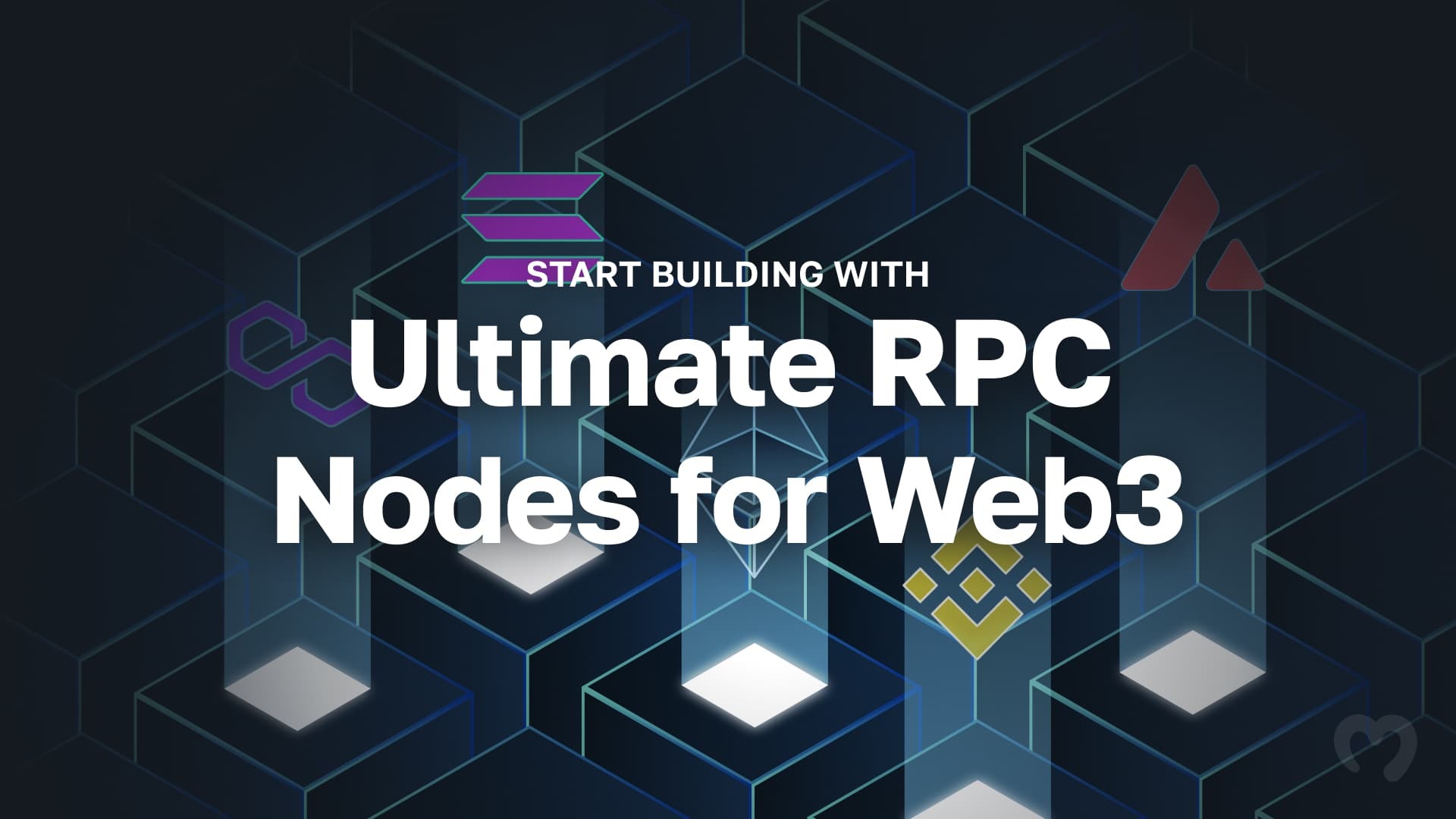
However what makes our nodes one of the best within the enterprise?
Reliability: Moralis’ nodes are engineered to satisfy the best reliability requirements, making certain 99.9% uptime. Pace: With Moralis’ nodes, you get to expertise lightning-fast response occasions as little as 70 milliseconds, delivering the info you want immediately. Safety: As the one SOC 2 Sort 2 licensed infrastructure supplier in Web3, Moralis affords unmatched knowledge safety. Scalability: Designed to develop together with your initiatives, Moralis’ nodes will seamlessly deal with elevated visitors as your dapp features traction.
That offers you an outline of our premier node service. Within the subsequent part, we’ll present you the right way to arrange a Blast RPC node in three easy steps!
3-Step Tutorial: Run Blast RPC Nodes
Organising a Blast RPC node with Moralis is simple and could be executed in three easy steps:
Signal Up with MoralisSet Up a Blast NodeIntegrate Your Blast Node
Now, let’s dive into step one and get began!
Step 1: Signal Up with Moralis
To arrange Blast RPC nodes, you’ll first want a Moralis account. As such, should you don’t have one but, click on the “Begin for Free” button on the prime proper of the Moralis web site and observe the registration directions:
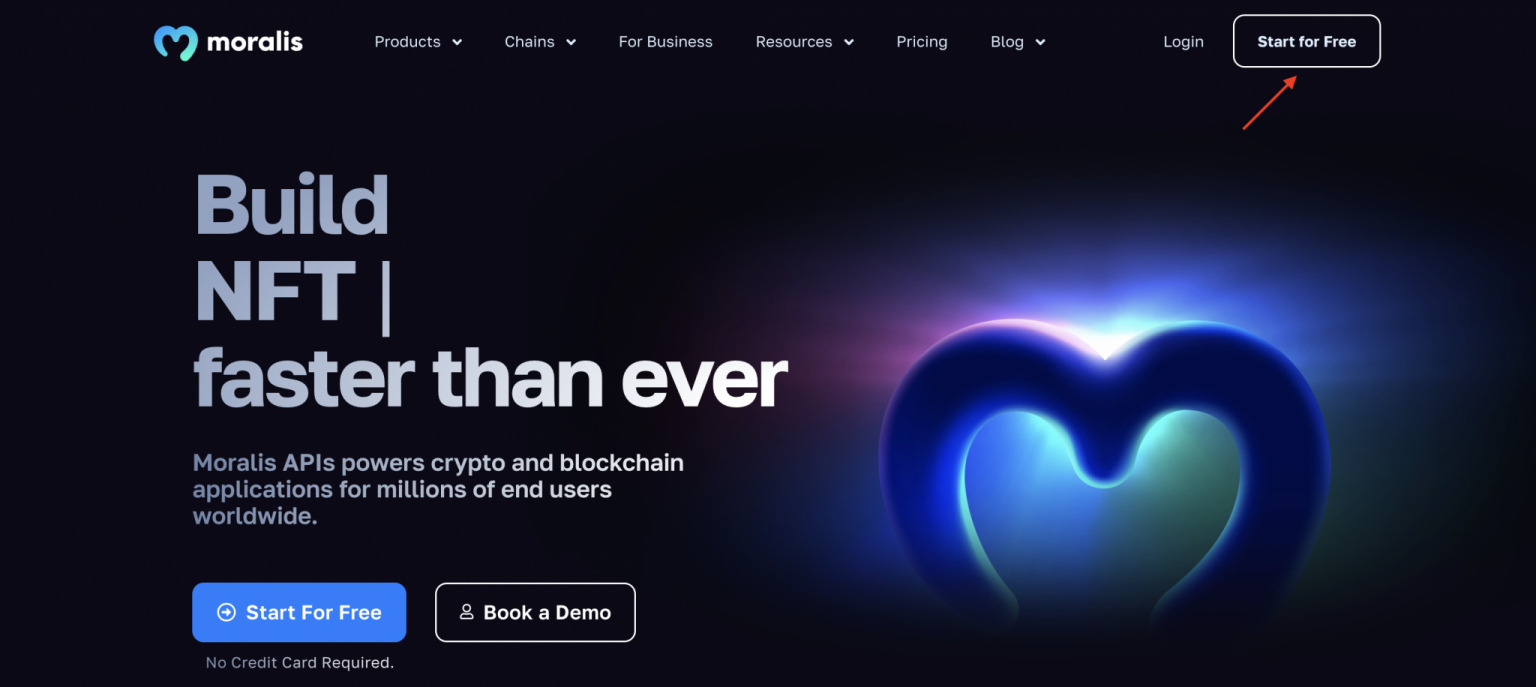
Step 2: Set Up a Blast Node
With an account at hand, login, go to the “Nodes” tab, and provoke the setup course of by clicking the “+ Create Node” button:
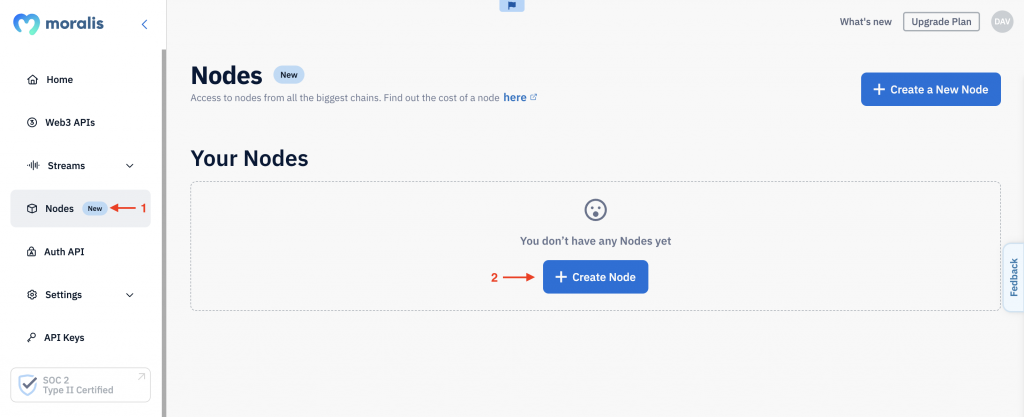
Configure your node by deciding on “Blast” adopted by “Mainnet”:
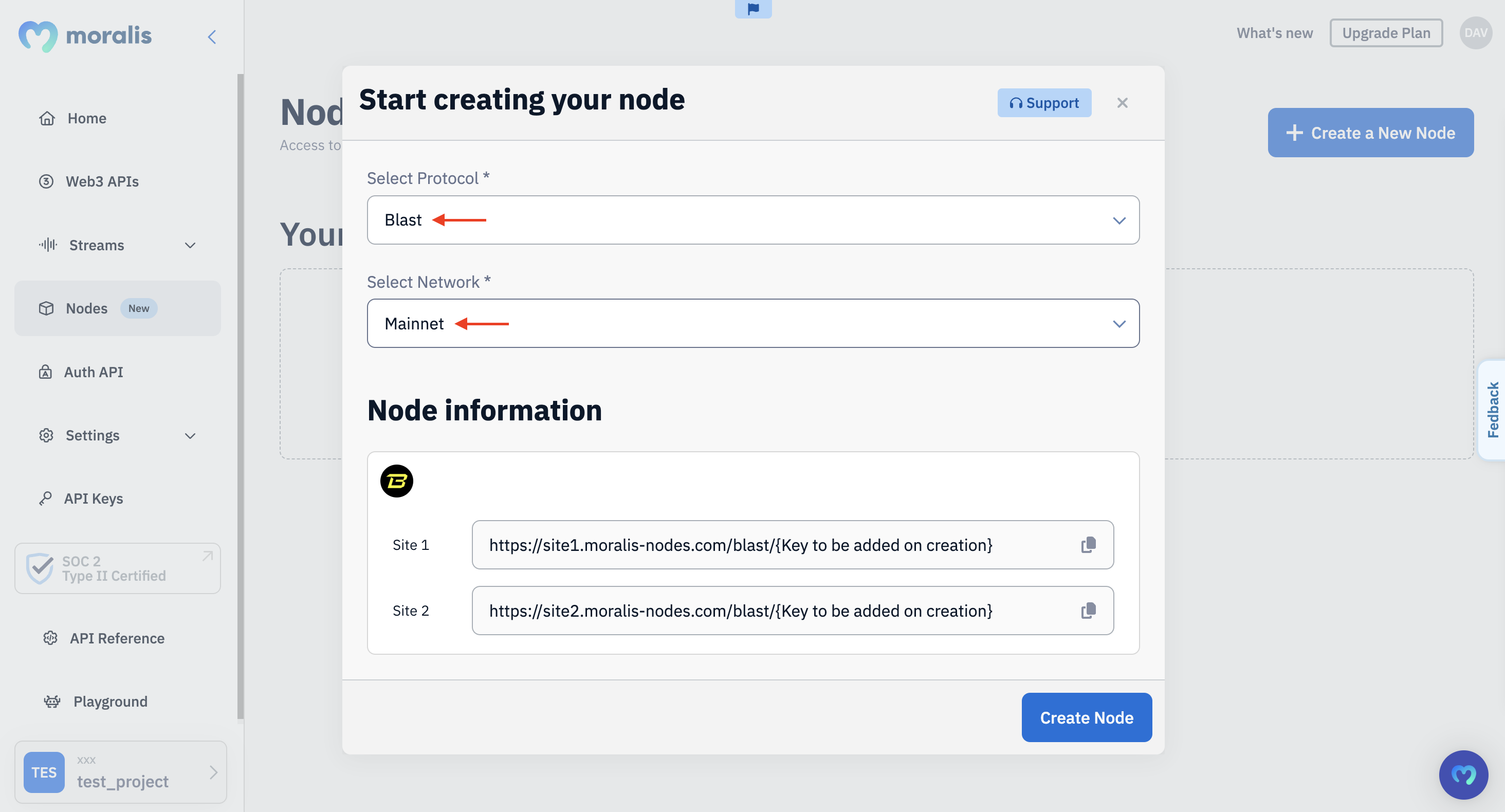
Click on the “Create Node” button:
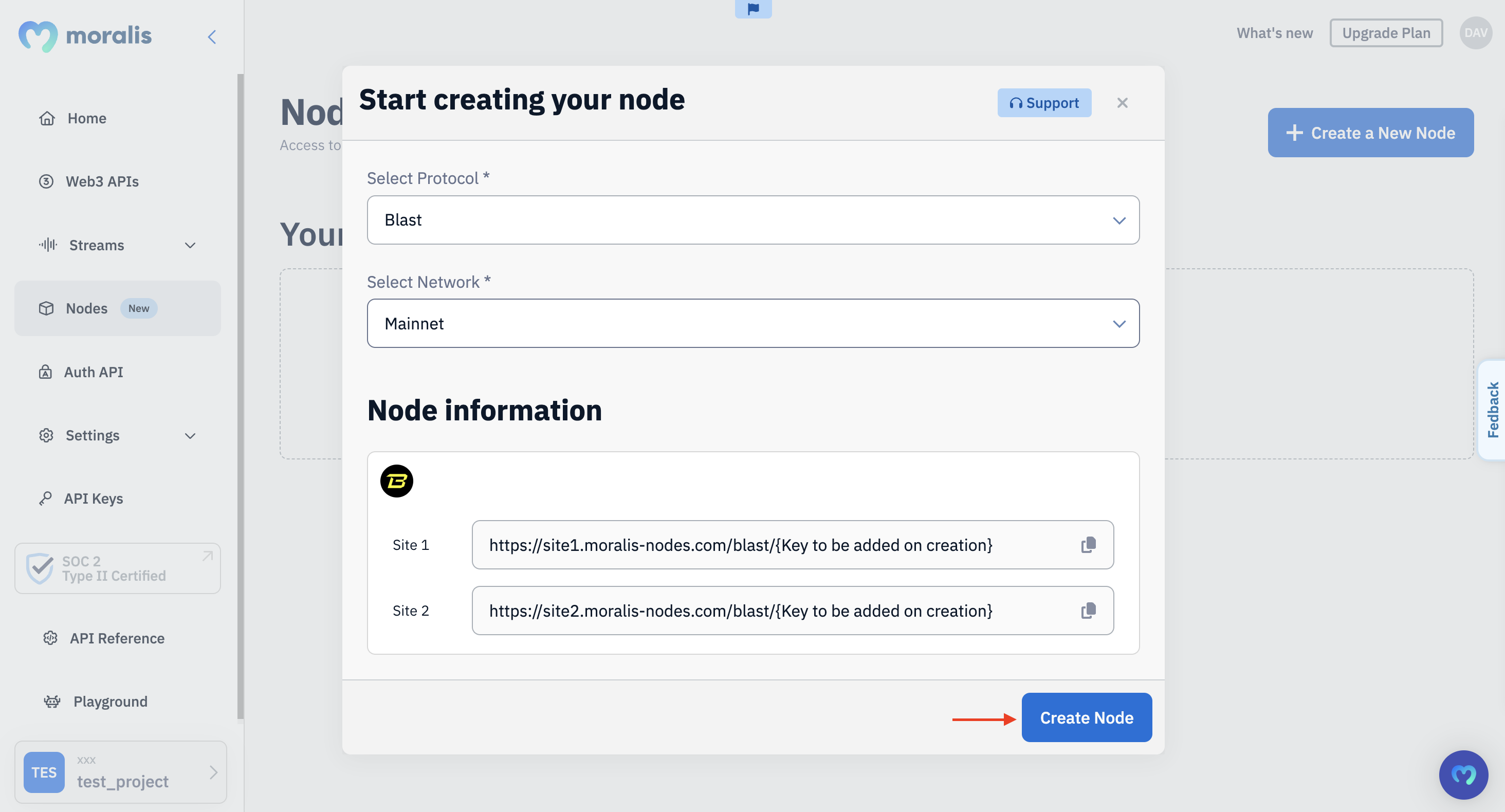
Step 3: Combine Your Blast Node
After clicking the “Create Node” button, you’ll obtain two URLs to your Blast nodes. Merely copy and combine one among these URLs into your dapp to work together with the Blast community:

That’s it! Organising Blast RPC nodes is simple with Moralis!
Name Blast RPC Nodes
Now that you know the way to run a Blast RPC node with Moralis, we’ll present you the right way to name it utilizing Ethers.js. Extra particularly, we’re going to point out you the right way to fetch the native steadiness of any Blast pockets!
Earlier than you get began, be sure you have the next prepared:
From right here, you’ll be able to observe the steps under to name your Blast RPC nodes:
Step 1: Launch your built-in improvement atmosphere (IDE), arrange a folder, open the terminal, and initialize a brand new mission with the next command:npm init Step 2: Set up Ethers.js with the terminal command under:npm set up ethers Step 3: Add “kind”: “module” to your “package deal.json” file:
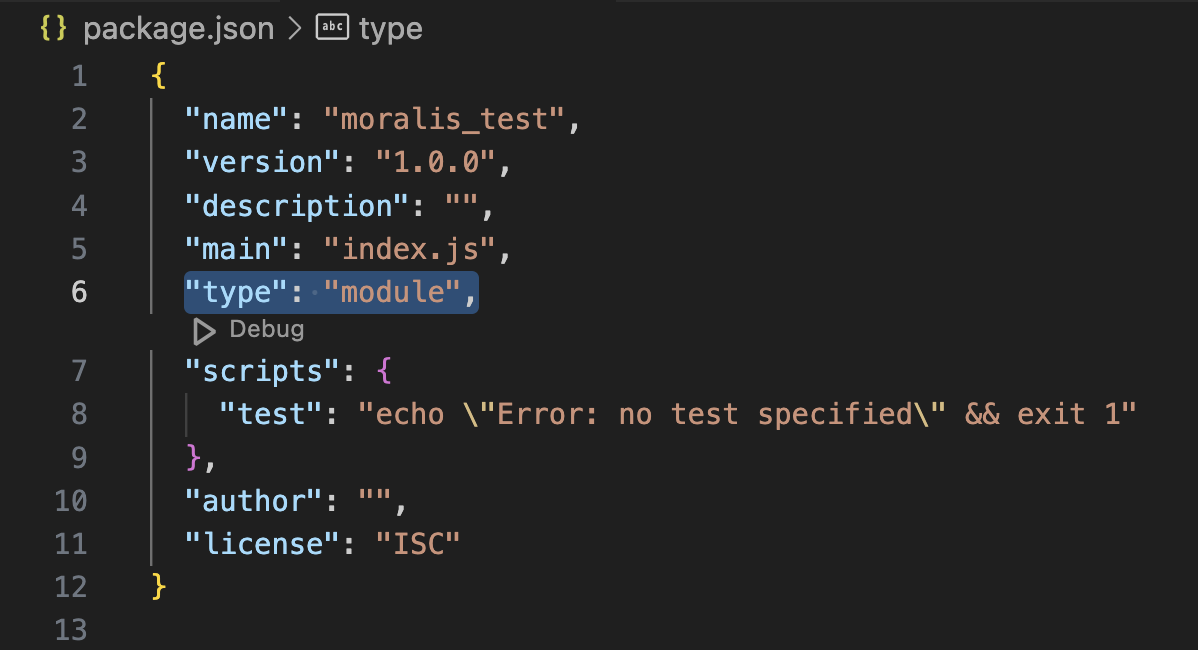
Step 4: Create a brand new “index.js” file and add the next code: import { ethers } from “ethers”;
const supplier = new ethers.suppliers.JsonRpcProvider(“YOUR_NODE_URL”);
const tackle = “0x442b7936b3a97f15bb88640d04bb44fae7da9fb3”;
const steadiness = await supplier.getBalance(tackle);
console.log(“Steadiness: “, ethers.utils.formatEther(steadiness));
Swap YOUR_NODE_URL to your Blast RPC node URL and configure the tackle parameter to suit your question:

Step 5: Run the code with the next terminal command:node index.js
After executing the command above, you’ll obtain the native steadiness of the required pockets. That is what it ought to appear to be in your terminal:
Steadiness: 0.01004
Congratulations! You now know the right way to make RPC calls to your Blast nodes!
For a extra in-depth tutorial with different examples of the sorts of knowledge you’ll be able to fetch together with your Blast RPC nodes, please watch the Moralis YouTube video under:
Drawbacks of Nodes
Whereas nodes are an enormous a part of Web3 improvement, they aren’t at all times the best choice, particularly when querying on-chain knowledge. However why is that? To reply this query, let’s discover three drawbacks of nodes:
Chain-Particular: Nodes are chain-specific, that means they’re tied to a sure blockchain community. This requires organising and sustaining a node for every blockchain you propose to work together with. Advanced to Question: Nodes are complicated to question. You may’t ask widespread questions like, “What ERC-20 tokens is pockets X holding?” To get such info, you should first make a number of requests after which compile the info your self. Uncooked Information: While you question a node, you obtain uncooked blockchain knowledge. Earlier than it turns into usable, it must be processed, which generally consists of decoding, decoding, and formatting the data. This may be each time-consuming and dear.

However there needs to be a greater approach, proper?
On the subject of fetching on-chain knowledge, you’re a lot better off utilizing a Web3 API supplier like Moralis. With our premier APIs, now you can question decoded blockchain knowledge with just some strains of code. Wish to study extra about this? Be part of us within the subsequent part as we dive a bit deeper into Moralis!
Past Blast RPC Nodes – Exploring Moralis’ Web3 APIs
Moralis is Web3’s main API supplier, providing you with 10+ interfaces specialised for varied use circumstances. Some distinguished examples embody the Token API, Streams API, Pockets API, and lots of extra. With these APIs, you’ll be able to seamlessly fetch decoded knowledge with out breaking a sweat. As such, whether or not you’re constructing a cryptocurrency pockets, portfolio tracker, decentralized trade (DEX), or different platforms, we’ve received your knowledge wants lined!

Listed here are just a few advantages of leveraging Moralis’ Web3 APIs:
Complete: Our APIs are specifically designed with the result in thoughts, providing you with extra knowledge with fewer API calls. This lets you construct your Web3 initiatives sooner and extra effectively. Cross-Chain: Don’t hassle with a brand new supplier for every chain you’re trying to work together with. Use Moralis’ actually cross-chain appropriate APIs and construct dapps throughout all main chains with one unified toolkit. Trusted: 100,000+ builders and enormous enterprises, together with MetaMask, Opera, Blockchain.com, and extra, already belief and use Moralis as their knowledge supplier.
When you’d wish to dive into our suite of premier improvement instruments, please go to the official Web3 API web page for extra info!
Abstract: Set Up a Blast RPC Node for Free
Organising a Blast RPC node from scratch could be fairly tedious with out the correct sources. Doing so sometimes requires a fancy infrastructure with substantial computational energy, storage capability, and bandwidth. Nevertheless, you’ll be able to bypass these challenges by utilizing a Web3 node supplier like Moralis.

At Moralis, we simplify operating blockchain nodes by managing all of the underlying complexities for you. In return, you’ll be able to leverage our intuitive consumer interface to run Blast RPC nodes with only a click on of a button.
However what units our nodes other than the competitors?
99.9% UptimeResponse Occasions from 70 msSOC 2 Sort 2 Licensed
When you loved this text on Blast RPC nodes, discover extra of our content material on the weblog. For instance, you may discover our guides on different blockchain nodes helpful:
To arrange your individual Blast RPC nodes, don’t overlook to register for a free account with Moralis. Doing so provides you with quick entry to our node service and premier Web3 APIs!





















